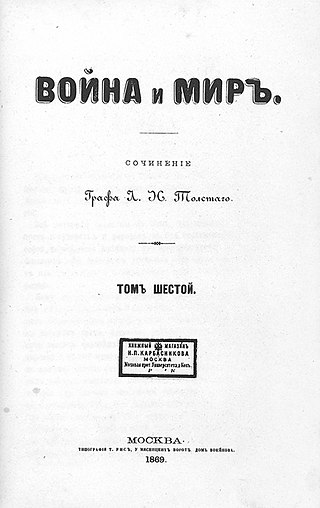
War and Peace is a literary work by the Russian author Leo Tolstoy. Set during the Napoleonic Wars, the work comprises both a fictional narrative and chapters in which Tolstoy discusses history and philosophy. An early version was published serially beginning in 1865, after which the entire book was rewritten and published in 1869. It is regarded, with Anna Karenina, as Tolstoy's finest literary achievement, and it remains an internationally praised classic of world literature.
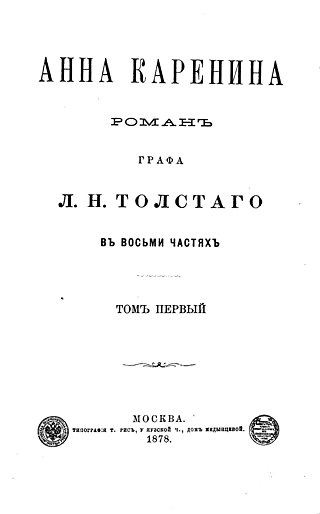
Anna Karenina is a novel by the Russian author Leo Tolstoy, first published in book form in 1878. Considered to be among the greatest works of literature ever written, Tolstoy himself called it his first true novel. It was initially released in serial installments from 1875 to 1877, all but the last part appearing in the periodical The Russian Messenger. By the time he was finishing up the last installments Tolstoy was in an anguished state of mind and, having come to hate it, finished it unwillingly. When William Faulkner was asked to list what he thought were the three greatest novels, he replied: "Anna Karenina, Anna Karenina, and Anna Karenina".

Ivan Sergeyevich Turgenev was a Russian novelist, short story writer, poet, playwright, translator and popularizer of Russian literature in the West.
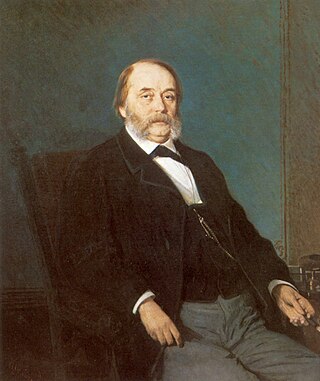
Ivan Aleksandrovich Goncharov was a Russian novelist best known for his novels The Same Old Story, Oblomov (1859), and The Precipice. He also served in many official capacities, including the position of censor.
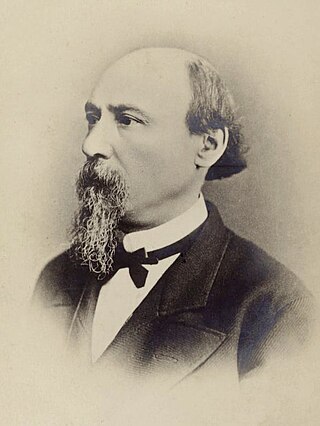
Nikolay Alexeyevich Nekrasov was a Russian poet, writer, critic and publisher, whose deeply compassionate poems about the Russian peasantry made him a hero of liberal and radical circles in the Russian intelligentsia of the mid-nineteenth century, particularly as represented by Vissarion Belinsky and Nikolay Chernyshevsky. He is credited with introducing into Russian poetry ternary meters and the technique of dramatic monologue. As the editor of several literary journals, notably Sovremennik, Nekrasov was also singularly successful and influential.

Count Aleksey Konstantinovich Tolstoy, often referred to as A. K. Tolstoy, was a Russian poet, novelist, and playwright. He is considered to be the most important nineteenth-century Russian historical dramatist, primarily on account of the strength of his dramatic trilogy The Death of Ivan the Terrible (1866), Tsar Fyodor Ioannovich (1868), and Tsar Boris (1870). He also gained fame for his satirical works, published under his own name and under the collaborational pen name of Kozma Prutkov. His fictional works include the novella The Family of the Vourdalak, The Vampire (1841), and the historical novel Prince Serebrenni (1862).
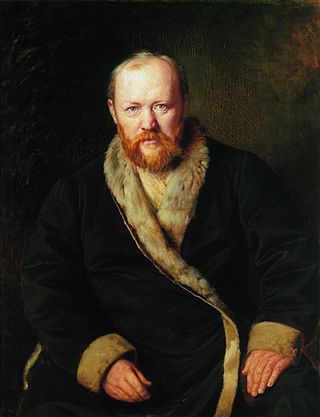
Alexander Nikolayevich Ostrovsky was a Russian playwright, generally considered the greatest representative of the Russian realistic period. The author of 47 original plays, Ostrovsky "almost single-handedly created a Russian national repertoire." His dramas are among the most widely read and frequently performed stage pieces in Russia.
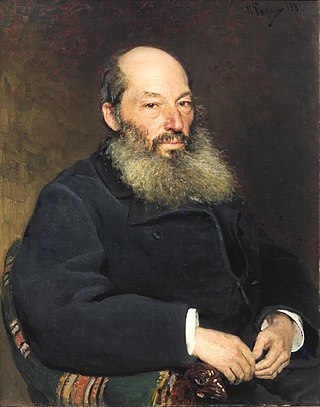
Afanasy Afanasyevich Fet, later known as Shenshin, was a renowned Russian poet regarded as the finest master of lyric verse in Russian literature.
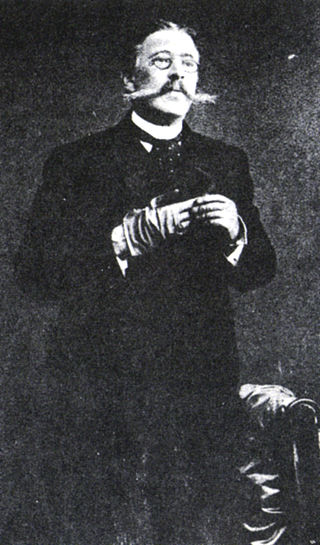
The Living Corpse is a Russian play by Leo Tolstoy. Although written around 1900, it was only published shortly after his death—Tolstoy had never considered the work finished. An immediate success, it is still performed. Arthur Hopkins produced its Broadway premiere in 1918 under the title Redemption, starring John Barrymore.
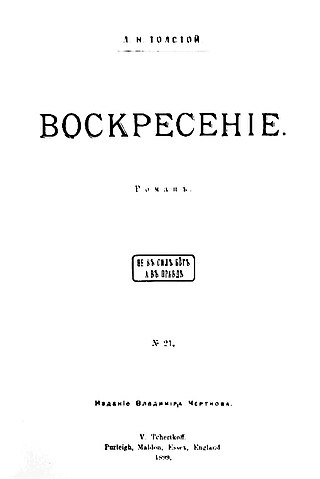
Resurrection, first published in 1899, was the last novel written by Leo Tolstoy. The book is the final of his major long fiction works published in his lifetime. Tolstoy intended the novel as a panoramic view of Russia at the end of the 19th century from the highest to the lowest levels of society and as an exposition of the injustice of man-made laws and the hypocrisy of the institutionalized church. The novel also explores the economic philosophy of Georgism, of which Tolstoy had become a very strong advocate towards the end of his life, and explains the theory in detail. The publication of Resurrection led to Tolstoy's excommunication by the Holy Synod from the Russian Orthodox Church in 1901.
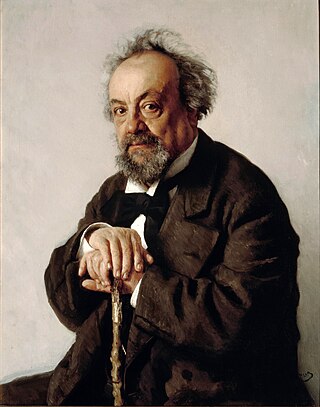
Aleksey Feofilaktovich Pisemsky was a Russian novelist and dramatist who was regarded as an equal of Ivan Turgenev and Fyodor Dostoyevsky in the late 1850s, but whose reputation suffered a spectacular decline after his fall-out with Sovremennik magazine in the early 1860s. A realistic playwright, along with Aleksandr Ostrovsky he was responsible for the first dramatization of ordinary people in the history of Russian theatre. "Pisemsky's great narrative gift and exceptionally strong grip on reality make him one of the best Russian novelists" according to D.S. Mirsky.
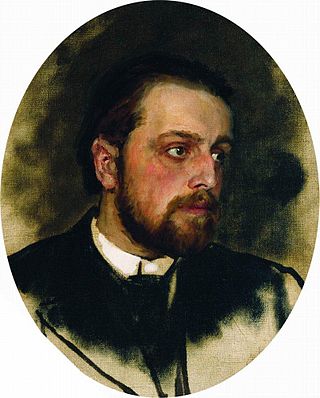
Vladimir Grigoryevich Chertkov (Russian: Влади́мир Григо́рьевич Чертко́в; also transliterated as Chertkoff, Tchertkoff, or Tschertkow was one of the editors of the works of Leo Tolstoy, and one of the most prominent Tolstoyans. After the revolutions of 1917, Chertkov was instrumental in creating the United Council of Religious Communities and Groups, which eventually came to administer the Russian SFSR's conscientious objection program.

Sovremennik was a Russian literary, social and political magazine, published in Saint Petersburg in 1836–1866. It came out four times a year in 1836–1843 and once a month after that. The magazine published poetry, prose, critical, historical, ethnographic and other material.

The Captain's Daughter is a historical novel by the Russian writer Alexander Pushkin. It was first published in 1836 in the fourth issue of the literary journal Sovremennik and is his only completed novel. The novel is a romanticized account of Pugachev's Rebellion in 1773–1774. The title "The Captain's Daughter" has also been used to refer to a collection of stories, one of which was the actual novel.
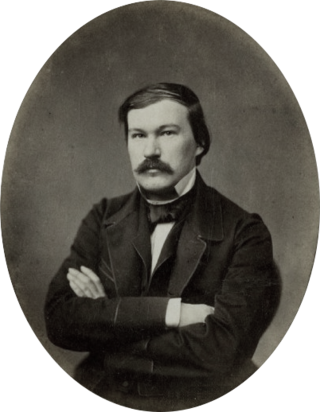
Alexander Vasilyevich Druzhinin, , was a Russian writer, translator, and magazine editor.
The Poor Bride is a play by Alexander Ostrovsky, written in 1851 and first published in the No.4, 1852 issue of Moskvityanin magazine. It was his second play to be staged at the Maly Theatre, where it premiered on 20 August 1853.
A Profitable Position is a play by Alexander Ostrovsky. It was first published in No.1, January 1857 issue of Russkaya Beseda and came out as a separate edition later that year. Banned from being produced at the Russian Imperial theatres, it was premiered only six years later, on September 27, 1863, in Saint Petersburg's Alexandrinsky Theatre as a benefice for actress Elizaveta Levkeyeva. On October 14 of the same year it was performed in Maly Theatre, as actress Ekaterina Vasilieva's benefice.
Live Not as You Would Like To is a play by Alexander Ostrovsky. It premiered on 3 December 1854 at the Moscow's Maly Theatre and was published for the first time in the No. 17, September 1855 issue of Moskvityanin magazine.
![<i>Family Happiness</i> (film) [[Soviet Union]] film](https://upload.wikimedia.org/wikipedia/en/b/b9/Family_Happiness_Russian_poster.jpg)
Family Happiness is a 1969 Soviet comedy film-almanac directed by Andrey Ladynin, Aleksandr Sheyn Sr. and Sergey Solovev.
Asya is a novella by Ivan Turgenev, first published in 1858 in the first issue of the Sovremennik magazine.
















![<i>Family Happiness</i> (film) [[Soviet Union]] film](https://upload.wikimedia.org/wikipedia/en/b/b9/Family_Happiness_Russian_poster.jpg)